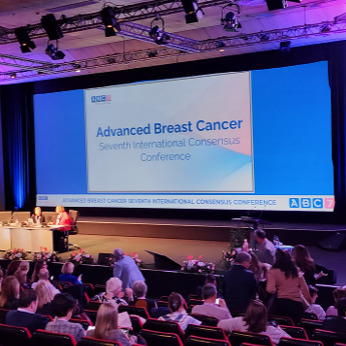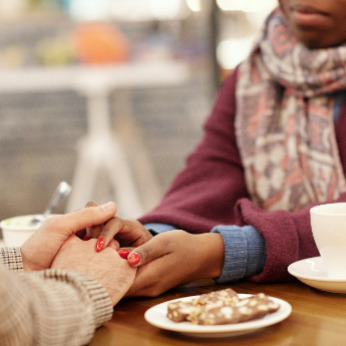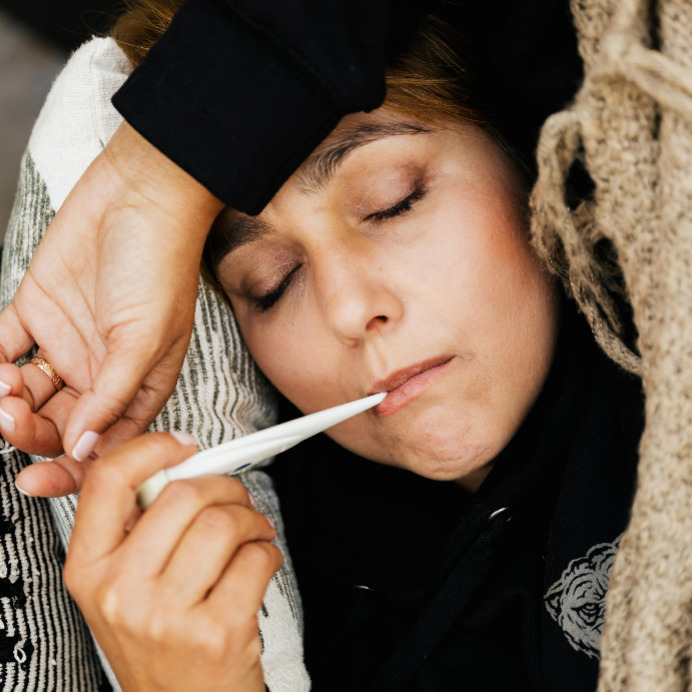By continuing to use our site, you consent to the processing of cookies, user data (location information, type and version of the OS, the type and version of the browser, the type of device and the resolution of its screen, the source of where the user came from, from which site or for what advertisement, language OS and Browser, which pages are opened and to which buttons the user presses, ip-address) for the purpose of site functioning, retargeting and statistical surveys and reviews. If you do not want your data to be processed, please leave the site.
The Voice of People With Breast Cancer
Education
Our Voices Blog
Category : Knowledge
Latest Research from SABCS 2023 – Early Stage
CBCN had the pleasure of attending the San Antonio Breast Cancer Symposium in December. Below you’ll find the latest research for early-stage breast cancer. Watch out for the latest research on mBC.
Our Top 10 Blog Posts from 2023
In 2023, our most read blog posts reflect the interest that patients have in connecting with others, seeking support, and sharing experiences and personal stories. Diagnoses at a young age, parenting with breast cancer, living with mBC, and other personal stories made up most of our list. Lifestyle, the latest research, and different options for reconstruction fill out the topics that our readers were most interested in last year. Here CBCN presents our top 10 blog posts from 2023.
Advanced Breast Cancer 7th (ABC7) International Consensus Conference Round-Up
CBCN had the opportunity to attend the ABC7 conference in Lisbon, Portugal from November 9 to 11, 2023. Here are some highlights from the conference.
Breast Cancer Research Highlights from the ESMO Congress 2023
The European Society of Medical Oncology held their annual congress in Madrid, Spain from October 20-24, 2023. Members of the CBCN team had the opportunity to attend and learn about the latest research to be announced for breast cancer. Here are some of those highlights.
Introducing the HAVEN Patient Support Program
Haven is a patient support program by Sentrex that specializes in oncology; this means our all our staff have oncology expertise. In fact, all Haven’s staff have joined Sentrex from hospital cancer centres. Haven offers certain patient support such as insurance reimbursement assistance and pharmacy services.
Metastatic Breast Cancer Should be Important to Us All
According to research from the National Cancer Institute, the number of women being diagnosed with metastatic breast cancer is increasing; at the same time, these women are living longer, especially younger women. Living longer with metastatic breast cancer, a stage of breast cancer which is driven in part by out-of-control production of proteins by cancerous cells, means increased needs for services and research.
World Breast Cancer Research Day
In May 2021, The Dr. Susan Love Foundation, one of the top breast cancer research organizations in the United States, announced that every year, August 18th would be known as World Breast Cancer Research Day. The 18th was chosen as a representation of the 1 in 8 women who will be diagnosed with breast cancer during their lifetime. The Foundation also wanted the day to be apart from Breast Cancer Awareness month, which is October, as awareness, patient support, and research need to be highlighted throughout the year. Dr. Susan Love, founder of the Dr. Susan Love Foundation, recently passed away from recurrent leukemia on July 2, 2023. She was a pioneering breast cancer researcher, advocate, surgeon, and fierce critic of the medical field’s historically patriarchal system and paternalistic treatment of women.
Neutropenia and Febrile Neutropenia
Neutropenia is a condition caused by lower-than-normal amounts of neutrophils, a type of white blood cell. Neutrophils fight infection in the body by killing harmful bacteria and other blood-borne pathogens. The most common cause of neutropenia during breast cancer treatment is chemotherapy, though other types of cancer medicine can also cause it. Chemotherapy can cause neutropenia because it kills rapidly dividing cells, such as cancer cells. It can also affect other quickly dividing cells in our bodies, including white blood cells, red blood cells, and platelets. When chemotherapy destroys too many white blood cells, neutropenia occurs.
Taking the Plunge: Breast Cancer and the Dating Pool
The thought of dating after a breast cancer diagnosis and treatment might make you nervous or excited. It may also reawaken or increase emotional responses you had at diagnosis or during treatment. If you have anxiety or depression, these responses can cause you to focus on or magnify negative thoughts about your prospects for dating. If you want to date but feel reluctant to start, you might be having difficulty imagining yourself meeting new people and having fun.
FinNav Five: Government Programs
The negative financial impacts after a breast cancer diagnosis can be strenuous, especially for those already in a precarious financial situation prior to being diagnosed. Already having to deal with the overwhelming feeling of being diagnosed with breast cancer, patients should be able to focus on their health and not have the added stress of dealing with their financial situation. That is why we created FinancialNavigator, an online database of various financial assistance programs across Canada.













